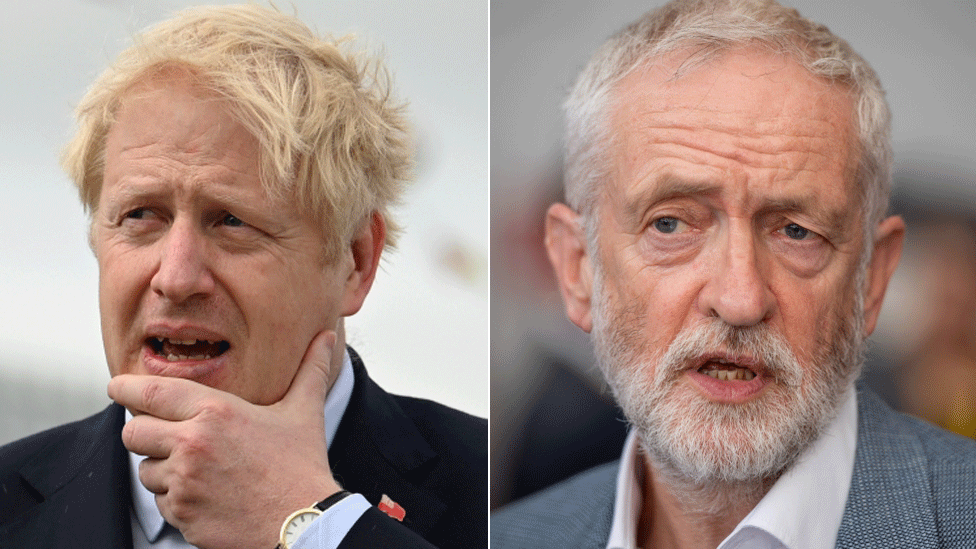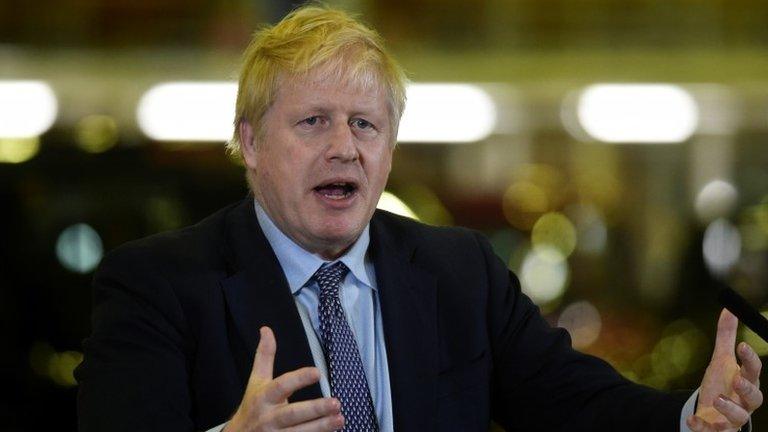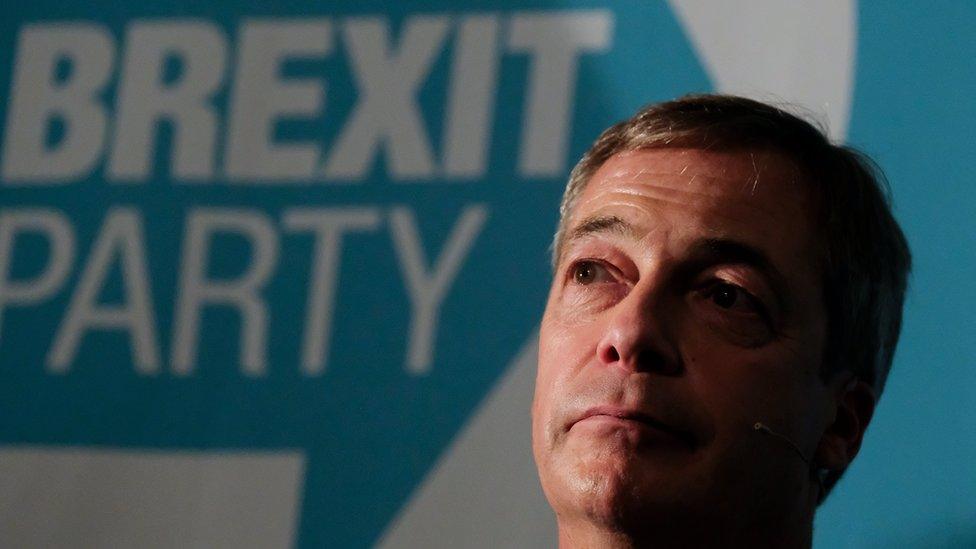General election 2019: What we can read into the polls at this stage
- Published

An old hand once offered me a wise piece of advice: if an opinion poll generates a strong headline it will probably turn out to be wrong.
So it is sensible to treat the polls with caution. At this stage of the 2017 general election, the world was debating whether Theresa May's majority would be above or below 100.
But opinion polls can provide a helpful snapshot of the electorate's thinking at the moment they are conducted.
With four weeks to go until election day, there appear to be two clear strands in the current polls.
First, Boris Johnson is ahead, in part because the Leave vote is rallying behind the Conservatives.
The second theme is that the Remain vote is splintering. That explains, in part, why Labour is so far behind the Tories and why the Liberal Democrats are continuing to enjoy a revival.
At this point a second rule of opinion poll reporting applies. Political parties will loftily claim they have better things to worry about than opinion polls, all the while spending a fortune on "private" polls and poring over every detail of published polls.
Downing Street believes the only way Boris Johnson can deliver his Brexit deal and the subsequent future EU trade negotiations is by securing a credible parliamentary majority - 330 seats is effectively the minimum.
The Remain side - many Labour candidates and the Lib Dems as a whole - think Boris Johnson is highly likely to win the largest number of seats at the election. And so their most realistic ambition is to deny him a parliamentary majority. The way to do that is to play the classic underdog card of saying: put a check on the frontrunner.
The argument will have to be phrased carefully because of course, everyone insists they are on course for victory. But expect an argument along these lines: with a majority Boris Johnson can do what he likes on Brexit, so rein him in.
'A united political force'
This is where the former Conservative Lord Chancellor David Gauke enters the picture.
One of Gauke's principal arguments for running as an independent in South West Hertfordshire - where he has been the MP since 2005 - is the fear that an unrestricted Boris Johnson government would threaten a no-deal Brexit through refusing to extend the transition period beyond December 2020.
The transition, dubbed the "membership minus votes" period, when the UK has all the benefits and obligations of EU membership without a say on the rules, is due to run out at the end of December next year. It can, in theory, be extended by one or two years.
Gauke - who lost the whip in September for voting to block a no-deal Brexit - agreed to vote for Johnson's new Brexit deal in October after being given a specific undertaking in the Commons by Robert Buckland. Buckland, his successor as Lord Chancellor, said MPs would be able to vote before 1 July on whether to extend the trade talks by one or two years.
Talks are due to take place during the transition period that will kick in after the UK leaves the EU on 31 January.
However if the prime minister wins a majority, the Buckland commitment will probably die. While Brexiteer cabinet ministers are delighted, more pro-European cabinet ministers are disappointed.
If Johnson fails to secure a majority, the Buckland commitment could return to life. It may be the price the prime minister has to pay to stay in office.
David Gauke may provide the Remain side with a rallying cry on the threat of a new no-deal Brexit. But the pro-Europeans are divided, as the Liberal Democrats demonstrated when they pledged to stand against Gauke.
Boris Johnson, by contrast, is rapidly becoming the unofficial leader of the Leave side, even as The Brexit Party's Nigel Farage ditched plans to take on the Tories in more than 300 seats.
And a united political force will always have an easier job in imposing its will.
You can watch Newsnight on BBC Two at 22:30 on weekdays. Catch up on iPlayer, subscribe to the programme on YouTube, external and follow it on Twitter, external.
- Published13 November 2019

- Published12 November 2019

